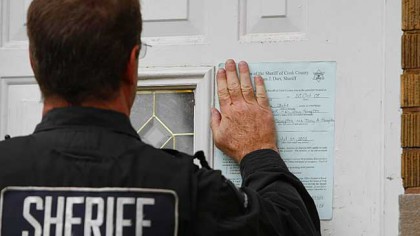
What Is A Sheriff’s Writ Of Possession In Florida?
Evictions
Eviction Notice? Writ of Possession? 24-hours to leave? Florida Statute 83.62 states that in an action for possession, after the entry of judgment in favor of the landlord, the clerk shall issue a writ of possession, or a writ to the sheriff of the specific Florida county describing the property and and directing the sheriff to place the landlord in possession of the property after 24 hours notice conspicuously posted on the property. A Writ of Possession cannot be issued without the court entering a judgment in favor of the landlord for possession. For commercial evictions, the process is discussed in Florida Statute 83.241.
After the 24-hour period has elapsed, the sheriff will contact the landlord or the landlord’s attorney and schedule a time to meet at the property to ensure that the tenant has vacated and to remove all of the tenant’s personal property, if not already done so by the Tenant. Neither the sheriff nor the landlord or the landlord’s agent shall be liable to the tenant or any other party for the loss, destruction, or damage to the property after it has been removed.
Unlawful Detainers
For unlawful detainer actions, which seek possession of real property when there is no landlord/tenant relationship, the process is runs the same as an eviction when the property owner reaches the writ of possession stage. Specifically, Florida Statute 82.091 states If the court enters a judgment for the plaintiff, the plaintiff shall recover possession of the real property that he or she is entitled to and damages and costs. The court shall award a writ of possession to be executed without delay and execution for the plaintiff’s damages and costs.
Ejectments
In Florida, an ejectment is a legal action where possession of real property is being sought and the remedy is the removal of a person that does not legally have the right be in possession of that real property. Additionally, that unwanted person in possession is claiming either an interest, right or title in the real property. Florida Statute 66.021 states that when a plaintiff recovers in an action of ejectment, he or she may have one writ for possession and for damages and costs or, at his or her election, may have separate writs for possession and for damages and costs. In sum, the lock process works the same as it does for evictions and unlawful detainer actions.
If you have an eviction, unlawful detainer, or ejectment action, don’t go through the process alone. Call Law Office of Ryan S. Shipp, PLLC at 561.699.0399 to discuss your options so you can swiftly navigate through the legal system to get your property back fast. We represent landlords and property owners in both residential and commercial evictions and unlawful detainer and ejectment actions in Palm Beach County, Broward County, Miami-Dade County, and throughout the State of Florida.






